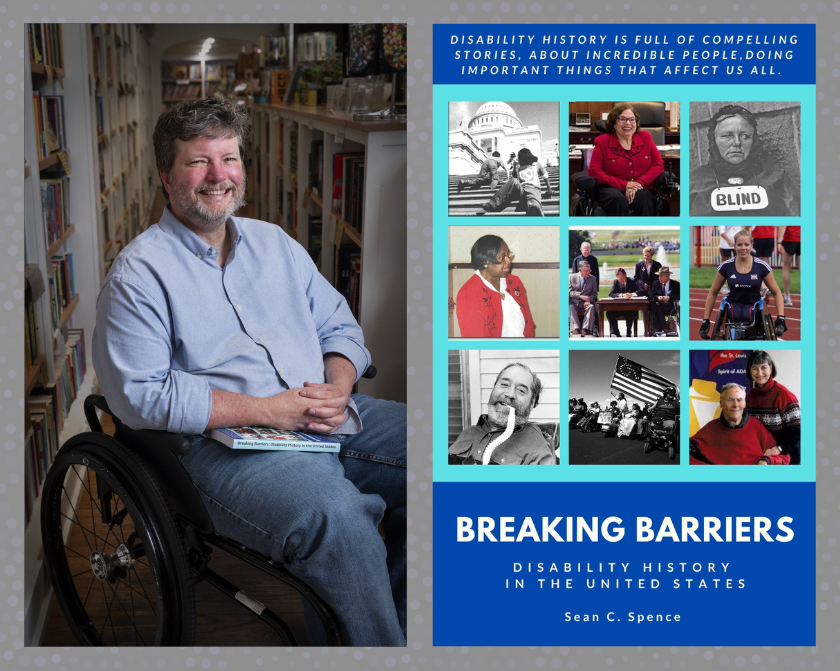
Labor Day’s more than just a three-day weekend, an excuse for a late summer barbeque and the last chance to wear white (not sure where that rule even came from, to be honest). For most folks, it’s hard to imagine working without lunch breaks, safety regulations and reasonable working hours. But all of those benefits we take for granted were hard won over a long struggle for worker’s rights, as well as tragedies that led to regulation, like the Triangle Shirtwaist Fire.
Since the Industrial Revolution, the worker’s rights movement has improved the lives of a majority of the populace, but not without strife and conflict. Early worker’s rights movements were suppressed by factory owners, strikes were broken up by police, big business and even the military, and unions were made suspect in the public eye due to propaganda. It’s only through persistence, activism, and regulation that we have the rights we do today (as well as the aforementioned three day weekend). Dive into the literature of the past, present, and future of work and the workers who do it, featuring the lives of those you can thank for the eight-hour workday, the woes of those used and left behind by big business, and working what-ifs on what automation will do to labor.
 “The Cold Millions” by Jess Walter
“The Cold Millions” by Jess Walter
The year is 1909. Labor in mining, logging and other manual work in the Pacific Northwest is plenty, but controlled by just a few large businesses. The area becomes a hotbed of worker unrest and a beacon to all who would fight on either side of the struggle. Labor organizers, strikebreakers, socialist firebrands and agent provocateurs descend onto Spokane’s powder keg of discontent.
Zooming in from the broad view, “The Cold Millions” follows Rye and Gig Dolan, two itinerant workers who get caught up in the Spokane free speech protests and riots. Gig is incarcerated with hundreds of the other protestors, in a jail meant to hold dozens. Rye, wanting to save his brother, meets a varied cast of characters that take from both Jess Walter’s fiction as well as the historical reality of the labor movement. Early Reston, a man who may just be a true believer in the philosophy of anarchy (or may be a police plant to rabblerouse and provoke), Elizabeth Gurley Flynn, a firecracker labor organizer willing to put herself on the front line, even while 7 months pregnant (and also one of the real life co-founders of the ACLU), and Lemuel Brand, a mining magnate with a bone to pick against agitating workers, all pull Rye into their tumultuous conflict as he just tries to keep his brother safe.
This book has the laudable distinction of being an educational experience, a crystal clear window into history, while also remaining a drama-filled page-turner. As someone who is not often drawn to historical fiction, Jess Walter’s extensive research and mastery of storytelling makes the story feel real and its world lived-in. Which, of course, it is, since the main events of the story truly happened. A better bit of historical fiction on the topic I defy you to find.
“Last Night at The Lobster” by Stewart O’Nan
Red Lobster: known for its remarkably delicious cheddar bay biscuits, a seemingly endless (if mediocre) supply of shrimp, and for declaring that their endless shrimp is the main factor that has driven them into bankruptcy. This most recent corporate hullabaloo has brought Stewart O’Nan’s novel “Last Night at the Lobster” back into the limelight. Inspired by stories of workers showing up at restaurants to learn that their job no longer existed, this novel showcases the fragility of an employee’s livelihood when a big business decides to cut corners.
On the eve of the Great Recession of 2008, Red Lobster manager Manny DeLeon is faced with the inevitable closure of his restaurant. Tomorrow, his Red Lobster will cease to be, and he and only four of his employees will get to be transferred to the franchise owner’s Olive Garden down the road. It’s December 20, a snowstorm is blowing in, and Manny must reconcile his personal relationship with his girlfriend, his lover, and his coworkers while grappling with the futility of working at a place that will not exist tomorrow.
This novel manages to capture the paradoxical drudgery and chaos that simultaneously occur within a food service job. Minutes drag by, but the stress of lunch rush piles on. Smoke breaks are hours away, yet flit by in an instant. And, on top of all of the responsibilities and chores a worker is set at, there’s still a living, vibrant person in there, who’s own experiences color their day-to-day tasks. O’Nan’s dedication to displaying the whole and entire truth of the last day of a restaurant can get plodding at times, but it accurately reflects the minimum-wage food service worker’s experience, especially how the effects of the whims of a far-off corporate owner can toy with a worker’s life who’s just trying to get by.
 “Player Piano” by Kurt Vonnegut
“Player Piano” by Kurt Vonnegut
Of course, it wouldn’t be a blog of mine without a venture into science fiction. The specter of AI automation has been haunting the labor market recently, providing big businesses an excuse to get rid of skilled labor in favor of quickly constructed and janky computer-generated art, writing, and more. While this feels like a very modern problem, the idea of over-automation of labor has been at the forefront of many a science fiction writer over the years. One of the most prominent is Kurt Vonnegut’s “Player Piano.”
In a not-too-far-off future, Vonnegut paints a picture of the absolute triumph of industry: a factory with no assembly line workers, no warehouse teamsters, no humans at all, except for engineers and managers. Where did all the workers go? They’re just across the river, in a town with no jobs, technically provided for but languishing at the lack of anything meaningful to do. The story follows Dr. Paul Proteus, the scion of a man who controlled the nation’s industrial arm during the last World War, as he comes to terms with an industry devoid of humanity, becomes involved with a Luddite movement which wants a return to human labor, and struggles with a company that wants to keep its labor costs down, especially when the cost is actually paying workers.
This novel addresses a common misconception with labor. In reality, most people want to work! Even when given benefits and opportunities to do less work (whether that be in the form of reasonable work breaks, adequate social programs, or the like), most folks want a chance to do something with their time and labor. As long as that labor is fairly compensated, you’ll find plenty of people willing to work.
So, next time you find yourself at a Labor Day cookout or relaxing on a late-summer day off, remember to tip a hat or raise a glass to all of us, the workers! If you want more reading on the topic, check out my booklist here.
In Solidarity,
David L.
“What the Chicken Knows: A New Appreciation of the World’s Most Familiar Bird” by Sy Montgomery (Nov 5)




